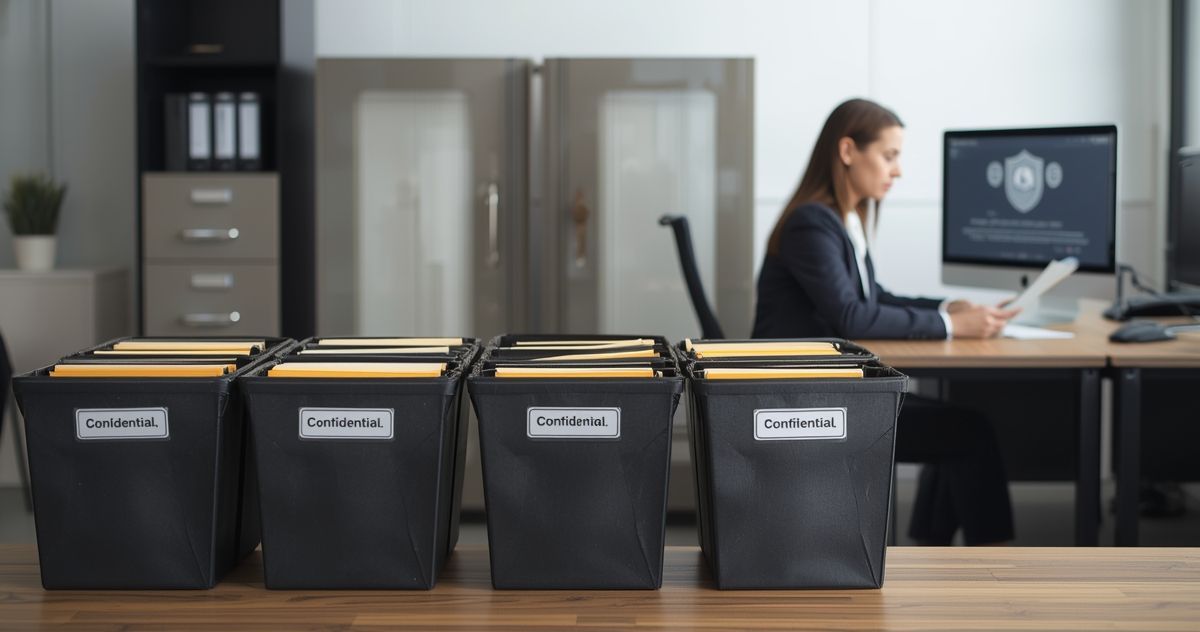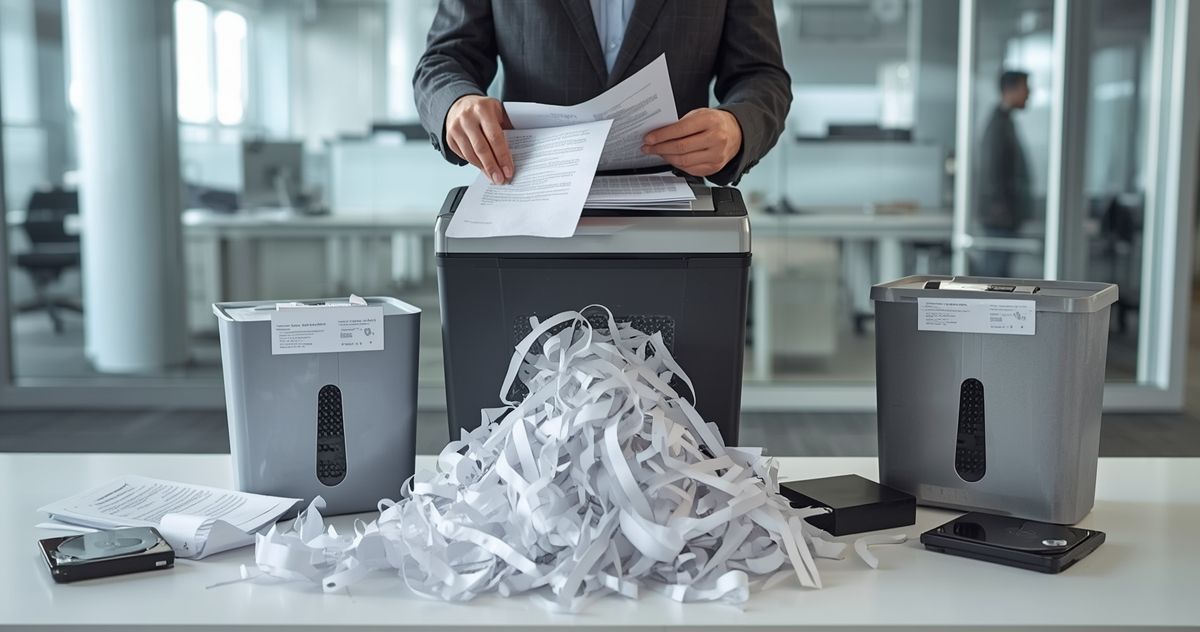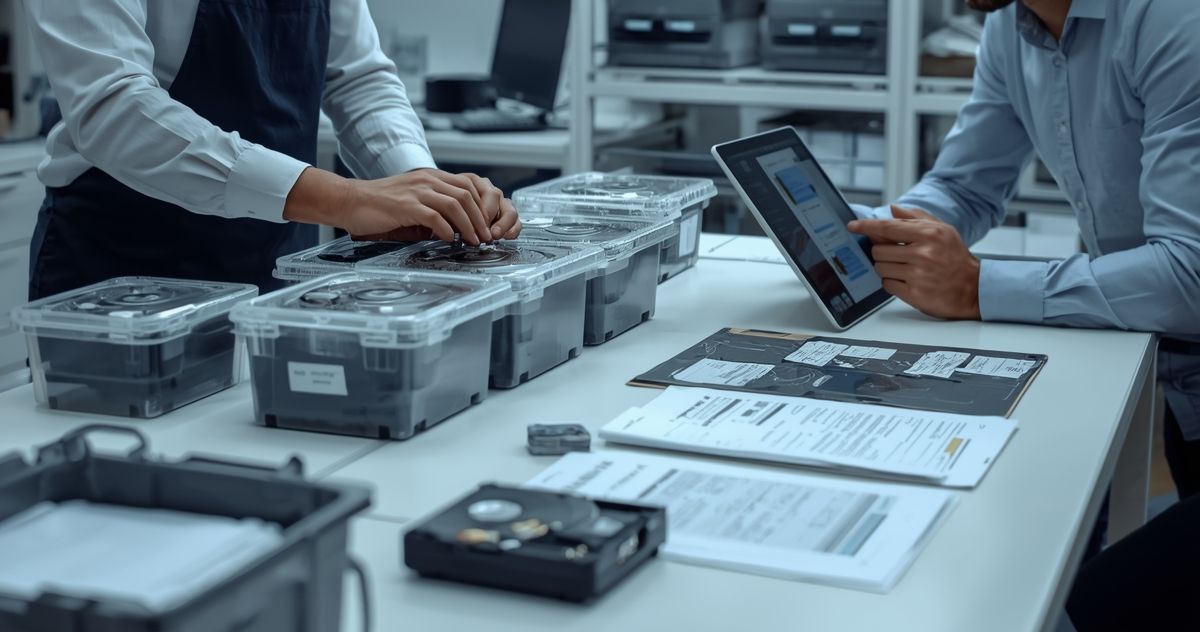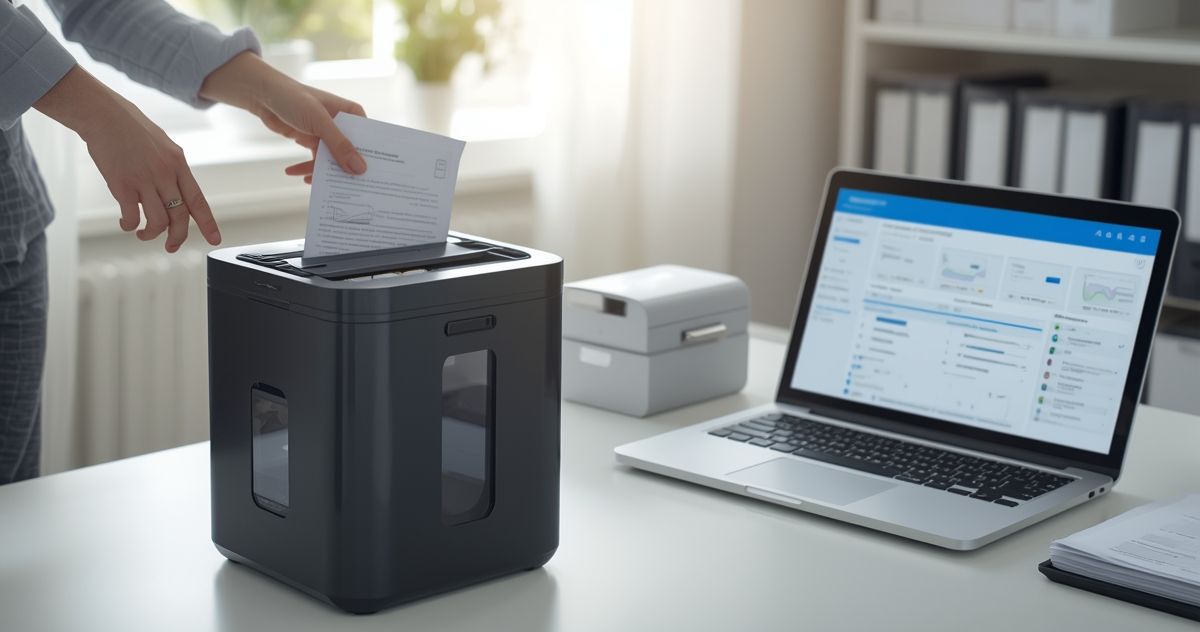Should You Use Destruction Services? Here's What You Need to Know
Should You Use Destruction Services? Here's What You Need to Know
In today's digital age, data security is more critical than ever. From businesses to individuals, safeguarding sensitive information is paramount. But what happens when you need to dispose of this data securely?
This is where destruction services come into play. These services ensure that your confidential information is irrecoverably destroyed, offering peace of mind and compliance with legal requirements.
If you've never considered using a destruction service before, you might wonder whether it's necessary. This blog post will explore who should use destruction services, why they're essential, and how to choose the right one for your needs.
The Growing Importance of Data Security
In recent years, data breaches and identity theft have become increasingly common. According to a report by IBM, the average cost of a data breach in 2020 was $3.86 million. This staggering figure highlights the importance of securing sensitive information, not just digitally but also physically.
Destruction services provide a reliable solution for disposing of confidential data, whether it's in the form of paper documents, hard drives, or other media. By ensuring that this information is irretrievably destroyed, you can safeguard against data breaches and identity theft.
What Are Destruction Services?
Destruction services involve securing confidential information, and ensuring that it cannot be recovered. These services can include shredding paper documents, destroying hard drives, and incinerating media containing sensitive data. Many companies offer on-site and off-site destruction options, allowing you to choose the best method.
By employing specialized equipment and techniques, destruction services ensure that your confidential information is destroyed beyond recognition. This process provides an additional layer of security, protecting you from potential data breaches and identity theft.
Who Benefits From Destruction Services?
Businesses
Companies that deal with sensitive information, such as customer data, financial records, and intellectual property, can benefit significantly from destruction services. By securely disposing of this information, businesses can protect their reputation and comply with legal requirements.
For instance, the Health Insurance Portability and Accountability Act (HIPAA) mandates that healthcare providers securely dispose of patient information.
Similarly, the Gramm-Leach-Bliley Act (GLBA) requires financial institutions to protect customer data. Destruction services help businesses comply with these regulations, reducing the risk of costly fines and legal repercussions.
Individuals
While destruction services are often associated with businesses, individuals can also benefit from these services. Personal documents such as bank statements, tax records, and medical information can contain sensitive data that could be used for identity theft.
According to the Federal Trade Commission (FTC), nearly 1 million identity theft reports were filed in 2023. Destruction services can help individuals protect their personal information, providing peace of mind and reducing the risk of identity theft.
Legal Professionals
Law firms and legal professionals handle a significant amount of confidential information, from client records to case files. Ensuring the secure disposal of this information is crucial to maintaining client trust and complying with legal requirements.
Many legal professionals turn to destruction services to securely dispose of sensitive documents, protecting their clients and their practice. By using these services, they can ensure that confidential information is destroyed beyond recovery, reducing the risk of data breaches and identity theft.
Healthcare Providers
Healthcare providers are responsible for safeguarding patient information, including medical records and billing information. Failure to securely dispose of this information can result in severe legal and financial consequences.
Destruction services provide healthcare providers with a reliable method for disposing of sensitive information, ensuring compliance with HIPAA and other regulations. By securely destroying patient information, healthcare providers can protect their patients and their practice.
Why Use Destruction Services?
Compliance with Legal Requirements
Many industries are subject to strict regulations regarding the disposal of confidential information. Destruction services help businesses and individuals comply with these regulations, reducing the risk of costly fines and legal repercussions.
For example, the Fair and Accurate Credit Transactions Act (FACTA) requires businesses to securely dispose of consumer information to protect against identity theft. By using destruction services, businesses can ensure compliance with FACTA and other regulations, minimizing the risk of legal issues.
Protecting Sensitive Information
Data breaches and identity theft can have severe consequences, both financially and reputationally. Destruction services provide a secure method for disposing of confidential information, reducing the risk of data breaches and identity theft.
By employing specialized equipment and techniques, destruction services ensure that your confidential information is destroyed beyond recognition. This process provides an additional layer of security, protecting you from potential data breaches and identity theft.
Environmental Responsibility
Many destruction services offer environmentally friendly options for disposing of confidential information. For example, shredded paper can be recycled, reducing the environmental impact of paper disposal. Similarly, some companies offer secure e-waste disposal, ensuring that electronic devices are disposed of responsibly.
By choosing an environmentally friendly destruction service, you can reduce your environmental footprint while ensuring the secure disposal of confidential information.
How to Choose the Right Destruction Service
Assess Your Needs
Before selecting media destruction services, it is crucial to evaluate your unique requirements. Consider the type of information you need to dispose of, the volume of data, and any legal requirements that apply to your industry. This information will help you determine the best destruction method for your needs.
Research Providers
Once you've assessed your needs, research potential destruction service providers. Look for companies with a solid reputation, positive customer reviews, and industry certifications. These factors can indicate a reliable and trustworthy provider.
For example, the National Association for Information Destruction (NAID) offers certification programs for destruction service providers. Choosing a NAID-certified provider can ensure that your confidential information is disposed of securely and responsibly.
Request Quotes
Request quotes from multiple destruction service providers to compare pricing and services. Be sure to ask about any additional fees, such as transportation or disposal costs, to avoid unexpected expenses.
By comparing quotes, you can find a provider that offers the best value for your needs. Remember that the cheapest option may not always be the best, so consider factors such as reputation and certification when making your decision.
Verify Security Measures
Ensure that the destruction service provider employs robust security measures to protect your confidential information. This may include background checks for employees, secure transportation, and detailed documentation of the destruction process.
By verifying security measures, you can ensure that your confidential information is protected throughout the disposal process. This can provide peace of mind and reduce the risk of data breaches and identity theft.
Conclusion
Destruction services play a crucial role in protecting confidential information from data breaches and identity theft. Businesses of all sizes, individuals, legal professionals, and healthcare providers can benefit from these services, ensuring compliance with legal requirements and safeguarding sensitive data.
By understanding the importance of destruction services and choosing the right provider, you can protect your confidential information and enjoy peace of mind.
Don't wait until it's too late—explore your options for destruction services today and take the first step towards securing your data.
Ready to take control of your data security?
At Data Shredder Corporation in Massachusetts, we understand how crucial it is to destroy sensitive data securely and recycle e-waste. We're here to offer you the best secure hard drive disposal, shredding, and e-waste recycling services in Massachusetts, ensuring your peace of mind while contributing to the planet's health.
Your trust is our top priority, and we're dedicated to safeguarding your information with our certified, dependable solutions. Before a security breach even whispers your name, give us a call at(508) 906-6080 or fill out our
contact form.











Share On: